Several much-delayed major releases finally appeared but it was often the unexpected ones that elicited the strongest responses from viewers. The medium is as strong as ever and it's definitely here to stay.
The following are what I consider to be the 10 best movies released in the UK since January 2021...
10. ANOTHER ROUND (dir. Thomas Vinterberg)
A mighty performance from the redoubtable Mads Mikkelsen grounds this tale of midlife crises and boozing with a bittersweet truthfulness as a group of teacher friends decide to see if they can function on specific amounts of alcohol per day. It's not a judgy film that wants to school its audience on the dangers of consuming alcohol in excess, but it doesn't skimp over what occurs when things start to get out of control either. Rather, it's more balanced in its approach: alcohol can bring great happiness but also great pain. It has its darker passages but it's also tremendously funny as it zeroes in on several men who are attempting to take stock of their lives (or perhaps avoid taking stock for as long as they can) as the number of years behind them begins to exceed those ahead. Frequently moving, often sombre, it's ultimately an affirming reminder that while it is a struggle, life is still full of joy and wonder.
A mighty performance from the redoubtable Mads Mikkelsen grounds this tale of midlife crises and boozing with a bittersweet truthfulness as a group of teacher friends decide to see if they can function on specific amounts of alcohol per day. It's not a judgy film that wants to school its audience on the dangers of consuming alcohol in excess, but it doesn't skimp over what occurs when things start to get out of control either. Rather, it's more balanced in its approach: alcohol can bring great happiness but also great pain. It has its darker passages but it's also tremendously funny as it zeroes in on several men who are attempting to take stock of their lives (or perhaps avoid taking stock for as long as they can) as the number of years behind them begins to exceed those ahead. Frequently moving, often sombre, it's ultimately an affirming reminder that while it is a struggle, life is still full of joy and wonder.
9. SUMMER OF SOUL (...OR, WHEN THE REVOLUTION COULD NOT BE TELEVISED) (dir. Questlove)
Even over 50 years later, Woodstock is considered to be one of the defining events in popular culture for not only the year 1969, but the 1960s as a whole. It was certainly historically considered as the most important gathering of popular musicians of that year... or at least it was prior to Summer Of Soul being released. Around forty hours of footage filmed at the Harlem Cultural Festival during the summer of '69 were sat on for decades before being uncovered and ultimately assembled into an astonishingly vibrant documentary by The Roots' Ahmir 'Questlove' Thompson. The festival was set up to celebrate African American music and culture and ran across six weekends, featuring performances from Stevie Wonder, Nina Simone, B.B. King, the Staple Singers and many more. The setting feeds into the power of those performances, with some bordering on the religious through the sheer love, energy and exuberance being channelled between the musicians and the audience. Arguably, Sly & The Family Stone's appearance makes the most euphoric impact - on film, at least - but all told it's an essential historical document that captures an irrepressible snapshot of the tremendous creativity that existed in that era.
Even over 50 years later, Woodstock is considered to be one of the defining events in popular culture for not only the year 1969, but the 1960s as a whole. It was certainly historically considered as the most important gathering of popular musicians of that year... or at least it was prior to Summer Of Soul being released. Around forty hours of footage filmed at the Harlem Cultural Festival during the summer of '69 were sat on for decades before being uncovered and ultimately assembled into an astonishingly vibrant documentary by The Roots' Ahmir 'Questlove' Thompson. The festival was set up to celebrate African American music and culture and ran across six weekends, featuring performances from Stevie Wonder, Nina Simone, B.B. King, the Staple Singers and many more. The setting feeds into the power of those performances, with some bordering on the religious through the sheer love, energy and exuberance being channelled between the musicians and the audience. Arguably, Sly & The Family Stone's appearance makes the most euphoric impact - on film, at least - but all told it's an essential historical document that captures an irrepressible snapshot of the tremendous creativity that existed in that era.
8. LAST NIGHT IN SOHO (dir. Edgar Wright)
Edgar Wright's second cinematic outing of the year (following the wonderfully breezy documentary The Sparks Brothers) is a genre-blending, time-shifting delight. Thomasin McKenzie's fashion student Ellie finds herself jumping backwards into the Swinging Sixties, inhabiting the body of Sandie, a vivacious Anya Taylor-Joy, whose hopes of a successful singing career are gradually dashed as she is drawn into the seedy underbelly of Soho at night. Wright brings the past to vivid life, with camera trickery allowing McKenzie and Taylor-Joy to exist in the same frame and, as the film progresses, elements of giallo begin to creep in as horrifying reality takes centre stage. The script (co-written by Wright and Krysty Wilson-Cairns) makes its points with specific clarity, leaving something substantial to chew upon following the stylistic fireworks that dazzle throughout.
Edgar Wright's second cinematic outing of the year (following the wonderfully breezy documentary The Sparks Brothers) is a genre-blending, time-shifting delight. Thomasin McKenzie's fashion student Ellie finds herself jumping backwards into the Swinging Sixties, inhabiting the body of Sandie, a vivacious Anya Taylor-Joy, whose hopes of a successful singing career are gradually dashed as she is drawn into the seedy underbelly of Soho at night. Wright brings the past to vivid life, with camera trickery allowing McKenzie and Taylor-Joy to exist in the same frame and, as the film progresses, elements of giallo begin to creep in as horrifying reality takes centre stage. The script (co-written by Wright and Krysty Wilson-Cairns) makes its points with specific clarity, leaving something substantial to chew upon following the stylistic fireworks that dazzle throughout.
7. NO TIME TO DIE (dir. Cary Joji Fukunaga)
Daniel Craig's last outing as 007 was famously the first major Hollywood movie to blink and move its release date when the Covid pandemic loomed on the horizon. A year and a half later than planned, it proved to be worth the wait, giving Craig's Bond a thoroughly satisfying end to an arc that started back in 2006 with Casino Royale. Muscular action sequences sit alongside a more emotionally charged plot as the stakes become more personal for the secret agent than they've ever been before. The more fantastical elements - Rami Malek's villain operates from a secret island lair and his evil plot involves using nanobots for genocidal population reduction! - are grounded by the more realistic (relatively speaking) approach that's been a major factor during Craig's tenure. Cary Joji Fukunaga brings a fine balance between the fantasy and realism from the director's chair, the excellent cast includes some old faces along with some welcome new ones, but it's really Craig's show, and with a complete story and definitive ending you wonder where the franchise can go from here.
Daniel Craig's last outing as 007 was famously the first major Hollywood movie to blink and move its release date when the Covid pandemic loomed on the horizon. A year and a half later than planned, it proved to be worth the wait, giving Craig's Bond a thoroughly satisfying end to an arc that started back in 2006 with Casino Royale. Muscular action sequences sit alongside a more emotionally charged plot as the stakes become more personal for the secret agent than they've ever been before. The more fantastical elements - Rami Malek's villain operates from a secret island lair and his evil plot involves using nanobots for genocidal population reduction! - are grounded by the more realistic (relatively speaking) approach that's been a major factor during Craig's tenure. Cary Joji Fukunaga brings a fine balance between the fantasy and realism from the director's chair, the excellent cast includes some old faces along with some welcome new ones, but it's really Craig's show, and with a complete story and definitive ending you wonder where the franchise can go from here.
6. ETERNALS (dir. Chloé Zhao)
Arguably Marvel Studio's most divisive addition to their multi-faceted franchise to date, Chloé Zhao's Eternals is far more bold and ambitious than many gave it credit for. Following on from Oscar-winning glory with the low-budget Nomadland by venturing into CGI-heavy superheroics was always going to frame the conversation surrounding the film in a certain way, but Zhao's approach to the material was more contemplative and philosophical than is generally expected within the MCU, with moral shades of grey taking precedence over the binary good versus evil template that has become the norm. The ensemble cast gave a sense of shared history over the centuries and the storyline cracked open the cosmic side of the MCU wider to hint at exciting possibilities for the future. The action was inarguably up to standard but it was the characters - immortal god-like beings grappling with their roles in the cosmos - that stood out, and those who recall the reception that initially greeted comics legend Jack Kirby's more 'out there' concepts back in the 1970s (before his complete genius was historically defined and confirmed) may spot similarities to the way Zhao's movie was received (and ponder how its reputation could develop over time).
Arguably Marvel Studio's most divisive addition to their multi-faceted franchise to date, Chloé Zhao's Eternals is far more bold and ambitious than many gave it credit for. Following on from Oscar-winning glory with the low-budget Nomadland by venturing into CGI-heavy superheroics was always going to frame the conversation surrounding the film in a certain way, but Zhao's approach to the material was more contemplative and philosophical than is generally expected within the MCU, with moral shades of grey taking precedence over the binary good versus evil template that has become the norm. The ensemble cast gave a sense of shared history over the centuries and the storyline cracked open the cosmic side of the MCU wider to hint at exciting possibilities for the future. The action was inarguably up to standard but it was the characters - immortal god-like beings grappling with their roles in the cosmos - that stood out, and those who recall the reception that initially greeted comics legend Jack Kirby's more 'out there' concepts back in the 1970s (before his complete genius was historically defined and confirmed) may spot similarities to the way Zhao's movie was received (and ponder how its reputation could develop over time).
5. SOUND OF METAL (dir. Darius Marder)
Darius Marder's contemplative, distressing look at a metal drummer's reaction to devastating hearing loss is frequently overwhelming in the way it presents a major life-changing event. Riz Ahmed is tremendous in the lead role, trying desperately to hold on to what he believes defines him as a person by resisting the shape his new life is taking. It's a heartbreaking, sensitively handled portrayal of someone cycling through the stages of grief for a lost part themselves previously taken for granted. The support is excellent (particularly Paul Raci as a counsellor in a deaf rehab centre) and the sound design is magnificent, using noise and silence to efficiently approximate what it feels like to have something so integral to one's being suddenly and irrevocably disappear.
Darius Marder's contemplative, distressing look at a metal drummer's reaction to devastating hearing loss is frequently overwhelming in the way it presents a major life-changing event. Riz Ahmed is tremendous in the lead role, trying desperately to hold on to what he believes defines him as a person by resisting the shape his new life is taking. It's a heartbreaking, sensitively handled portrayal of someone cycling through the stages of grief for a lost part themselves previously taken for granted. The support is excellent (particularly Paul Raci as a counsellor in a deaf rehab centre) and the sound design is magnificent, using noise and silence to efficiently approximate what it feels like to have something so integral to one's being suddenly and irrevocably disappear.
4. PIG (dir. Michael Sarnoski)
On paper, the tale of a woodland-dwelling hermit who has his truffle-hunting pig stolen doesn't sound like a contender for film of the year, especially with Nicolas Cage headlining. That's not a knock against Cage, but his predisposition towards wild-eyed histrionics perhaps gives the wrong impression of what this movie is about. Cage dials it all way down in with a nuanced performance that serves as a exceptional example of what he's still capable of and how foolish it is to ever write him off. Alex Wolff provides sturdy support as the high-rolling truffle trader whose impression of Cage's character morphs from tolerance to awe as more and more of his previous life is revealed. It's a tale of loss, grief, companionship and compassion, and the way it subverts expectations on its way to its destination compounds its overall impact. Michael Sarnoski's feature debut is extremely affecting on a number of levels, but it's Cage who stubbornly transmits its substantial emotional power.
On paper, the tale of a woodland-dwelling hermit who has his truffle-hunting pig stolen doesn't sound like a contender for film of the year, especially with Nicolas Cage headlining. That's not a knock against Cage, but his predisposition towards wild-eyed histrionics perhaps gives the wrong impression of what this movie is about. Cage dials it all way down in with a nuanced performance that serves as a exceptional example of what he's still capable of and how foolish it is to ever write him off. Alex Wolff provides sturdy support as the high-rolling truffle trader whose impression of Cage's character morphs from tolerance to awe as more and more of his previous life is revealed. It's a tale of loss, grief, companionship and compassion, and the way it subverts expectations on its way to its destination compounds its overall impact. Michael Sarnoski's feature debut is extremely affecting on a number of levels, but it's Cage who stubbornly transmits its substantial emotional power.
3. NOMADLAND (dir. Chloé Zhao)
Chloé Zhao's deserved Oscar winner blurs the lines between documentary and fiction by featuring real life nomadic van-dwellers alongside Frances McDormand's fictional central character in a way that adds authenticity and charm rather than feeling exploitative. McDormand is extraordinary, as we've perhaps come to expect; gentle but determined, her rapport with the real members of the community feels completely genuine, and the connections she establishes draw better performances from the rest of the cast. Zhao's film is contemplative and shows how some can thrive by forging ahead with a new way of living, breaking the cycle into a space that can be hard won but exists purely on their terms. Much of the film is shot in twilight, capturing the beauty of the moments before the sun sets, suggesting our later years don't need to be a dour wind-down towards the inevitable.
Chloé Zhao's deserved Oscar winner blurs the lines between documentary and fiction by featuring real life nomadic van-dwellers alongside Frances McDormand's fictional central character in a way that adds authenticity and charm rather than feeling exploitative. McDormand is extraordinary, as we've perhaps come to expect; gentle but determined, her rapport with the real members of the community feels completely genuine, and the connections she establishes draw better performances from the rest of the cast. Zhao's film is contemplative and shows how some can thrive by forging ahead with a new way of living, breaking the cycle into a space that can be hard won but exists purely on their terms. Much of the film is shot in twilight, capturing the beauty of the moments before the sun sets, suggesting our later years don't need to be a dour wind-down towards the inevitable.
2. C'MON C'MON (dir. Mike Mills)
A radio journalist looks after his nephew while his sister deals with issues regarding her bipolar husband. Perhaps not the most punchy high concept pitch but from this simple premise writer/director Mike Mills finds a rich seam of universal human truths. It all hinges on the film's central performances - Joaquin Phoenix as the aforementioned journo and Woody Norman as his nephew - and the chemistry they have together is sublime. It's heartfelt and heartbreaking, perceptive and profound, the naturalism displayed by both performers overwhelmingly real, and the honesty they both bring to their characters is often joyful, often devastating. It's a gentle, beautifully crafted and quietly powerful movie - the black and photography is remarkable (does New York City ever not look stunning in black and white?) and the score from The National's Aaron and Bryce Dessner is unobtrusive but effective. A deeply touching ode to love, friendship and the wisdom of youth. Out of the mouths of babes, as they say.
A radio journalist looks after his nephew while his sister deals with issues regarding her bipolar husband. Perhaps not the most punchy high concept pitch but from this simple premise writer/director Mike Mills finds a rich seam of universal human truths. It all hinges on the film's central performances - Joaquin Phoenix as the aforementioned journo and Woody Norman as his nephew - and the chemistry they have together is sublime. It's heartfelt and heartbreaking, perceptive and profound, the naturalism displayed by both performers overwhelmingly real, and the honesty they both bring to their characters is often joyful, often devastating. It's a gentle, beautifully crafted and quietly powerful movie - the black and photography is remarkable (does New York City ever not look stunning in black and white?) and the score from The National's Aaron and Bryce Dessner is unobtrusive but effective. A deeply touching ode to love, friendship and the wisdom of youth. Out of the mouths of babes, as they say.
1. DUNE (dir. Denis Villeneuve)
An immense cinematic spectacle, Denis Villeneuve's adaptation of (half of) Frank Herbert's supposedly unfilmable novel is one for the ages. It's a film that maximizes the full power generated through the combination of sound and imagery on a vast scale in the most breathtaking manner. Villeneuve has one of the most impressive track records of any director over the last decade (his last three films were Blade Runner 2049, Arrival and Sicario) and Dune feels a culmination of what he's been working towards in terms of grounding huge ideas with deep characterisation. An outstanding cast bring recognisable believability to mankind's far-flung future, the sheer awe induced by Greig Fraser's earthy cinematography and Hans Zimmer's majestic score never overshadowing the weighty dynamism of the central players. The likes of Rebecca Ferguson and Oscar Isaac are outstanding in their roles and Timothée Chalamet easily holds his own against more seasoned players as Paul Atreides, completely justifying the attention he's been getting over the last few years. The fact that we could have conceivably found ourselves in a world where the second part of the tale was left untold is unfathomable; fortunately the box office performance was strong enough to greenlight the sequel because Villeneuve has underscored the pure, visceral magic of cinema just at the moment when the world need to be reminded of what the medium is truly capable of.
An immense cinematic spectacle, Denis Villeneuve's adaptation of (half of) Frank Herbert's supposedly unfilmable novel is one for the ages. It's a film that maximizes the full power generated through the combination of sound and imagery on a vast scale in the most breathtaking manner. Villeneuve has one of the most impressive track records of any director over the last decade (his last three films were Blade Runner 2049, Arrival and Sicario) and Dune feels a culmination of what he's been working towards in terms of grounding huge ideas with deep characterisation. An outstanding cast bring recognisable believability to mankind's far-flung future, the sheer awe induced by Greig Fraser's earthy cinematography and Hans Zimmer's majestic score never overshadowing the weighty dynamism of the central players. The likes of Rebecca Ferguson and Oscar Isaac are outstanding in their roles and Timothée Chalamet easily holds his own against more seasoned players as Paul Atreides, completely justifying the attention he's been getting over the last few years. The fact that we could have conceivably found ourselves in a world where the second part of the tale was left untold is unfathomable; fortunately the box office performance was strong enough to greenlight the sequel because Villeneuve has underscored the pure, visceral magic of cinema just at the moment when the world need to be reminded of what the medium is truly capable of.





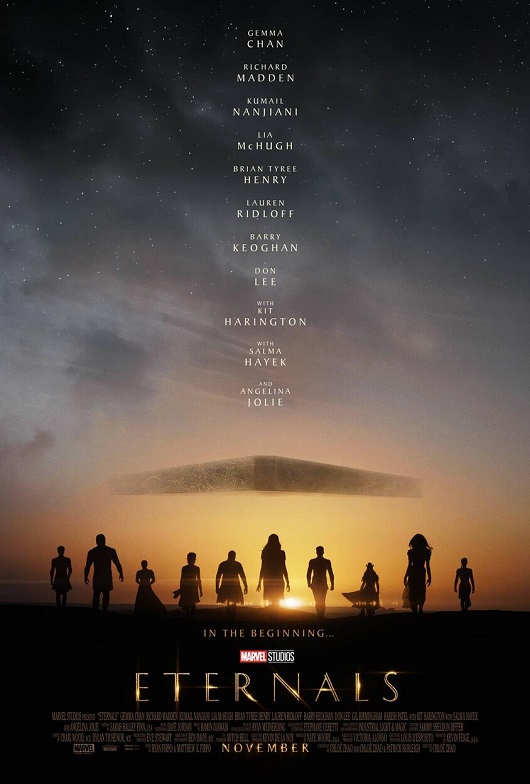
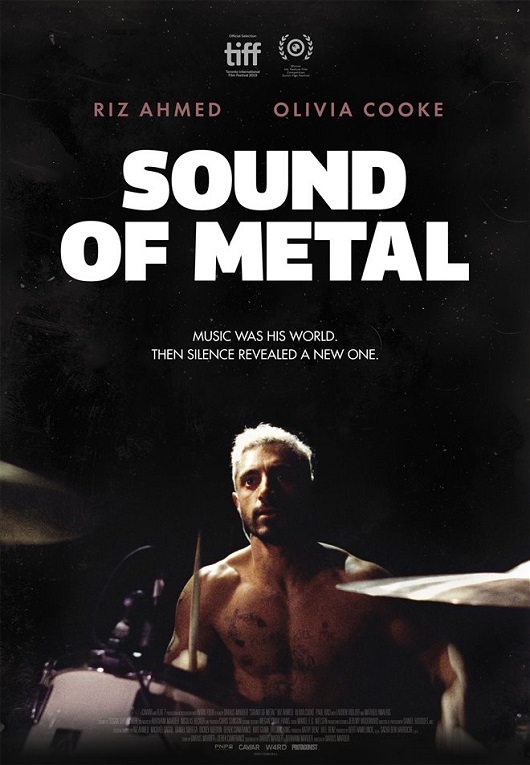
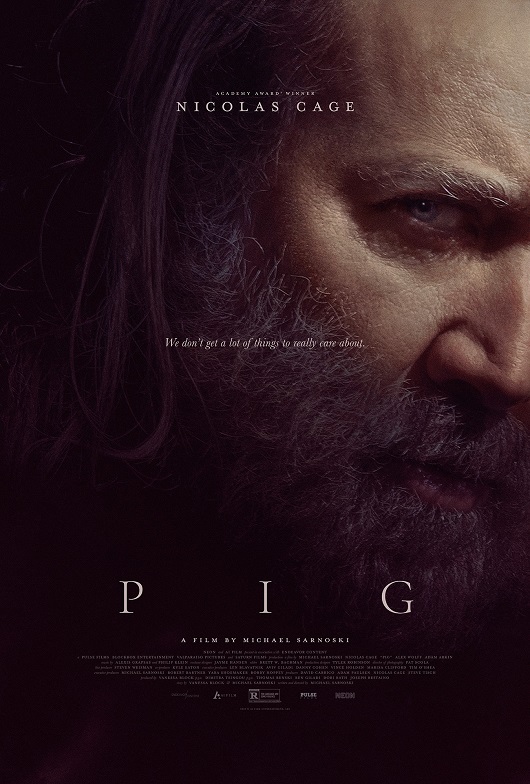
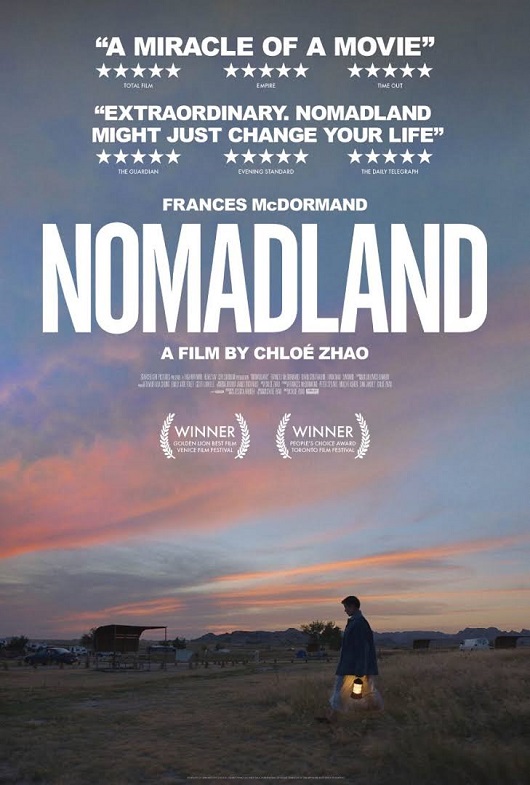
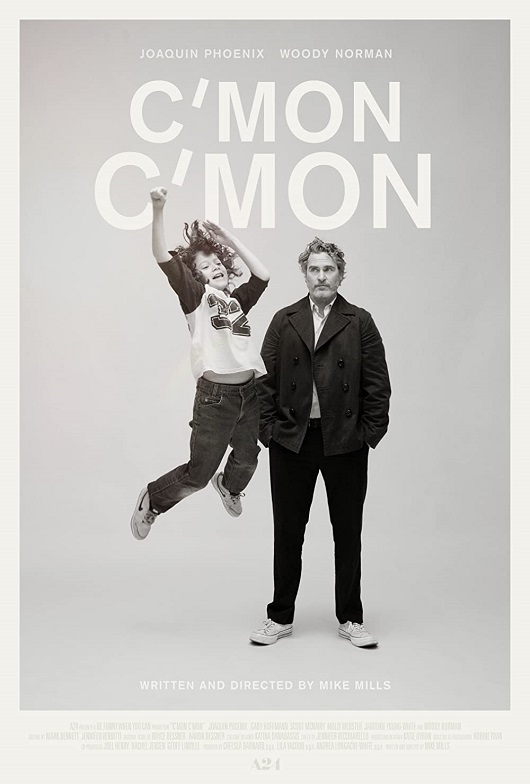



Comments
Post a Comment
Your comment will be moderated before being posted here. Thanks for your patience with this short delay.